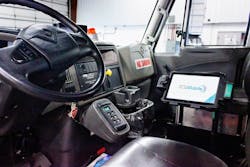Connecting fuelers to the cloud
FORT ATKINSON, Wis., - The idea behind smart metering for airport fueling activities has existed in some form for decades. In the 1990s, temperature correction capabilities and electronic ticketing were considered smart metering functions. At the turn of the century, monitoring differential pressure and utilizing wireless communication for data collection highlighted new features of smart metering systems, Josh Smith reports for Ground Support Worldwide. Continue reading original article.
The Military & Aerospace Electronics take:
15 August 2023 - And with time, the types of data that refuelers sought have evolved and grown, requiring smart metering to be redefined yet again as data from more components is being tracked and incorporated into electronic flow meters.
“When you talk about smart metering, that's really when it got deep because then we started collecting that information from all over – from different components of the refueler – and getting that pushed up to the cloud,” explains Dan Murray, president at Total Control Systems (TCS).
From recording data to measuring fuel and additives and tracking quality control processes on a refueler or at a tank farm, smart metering allows for accurate, efficient fueling operations at airports.
“Smart metering covers a lot,” Murray says.
Related: VoloIQ Aerospace Cloud Project: Volocopter and Microsoft collaborate
Related: Antaris announces successful launch of its cloud-built demo satellite
Jamie Whitney, Senior Editor
Military + Aerospace Electronics
